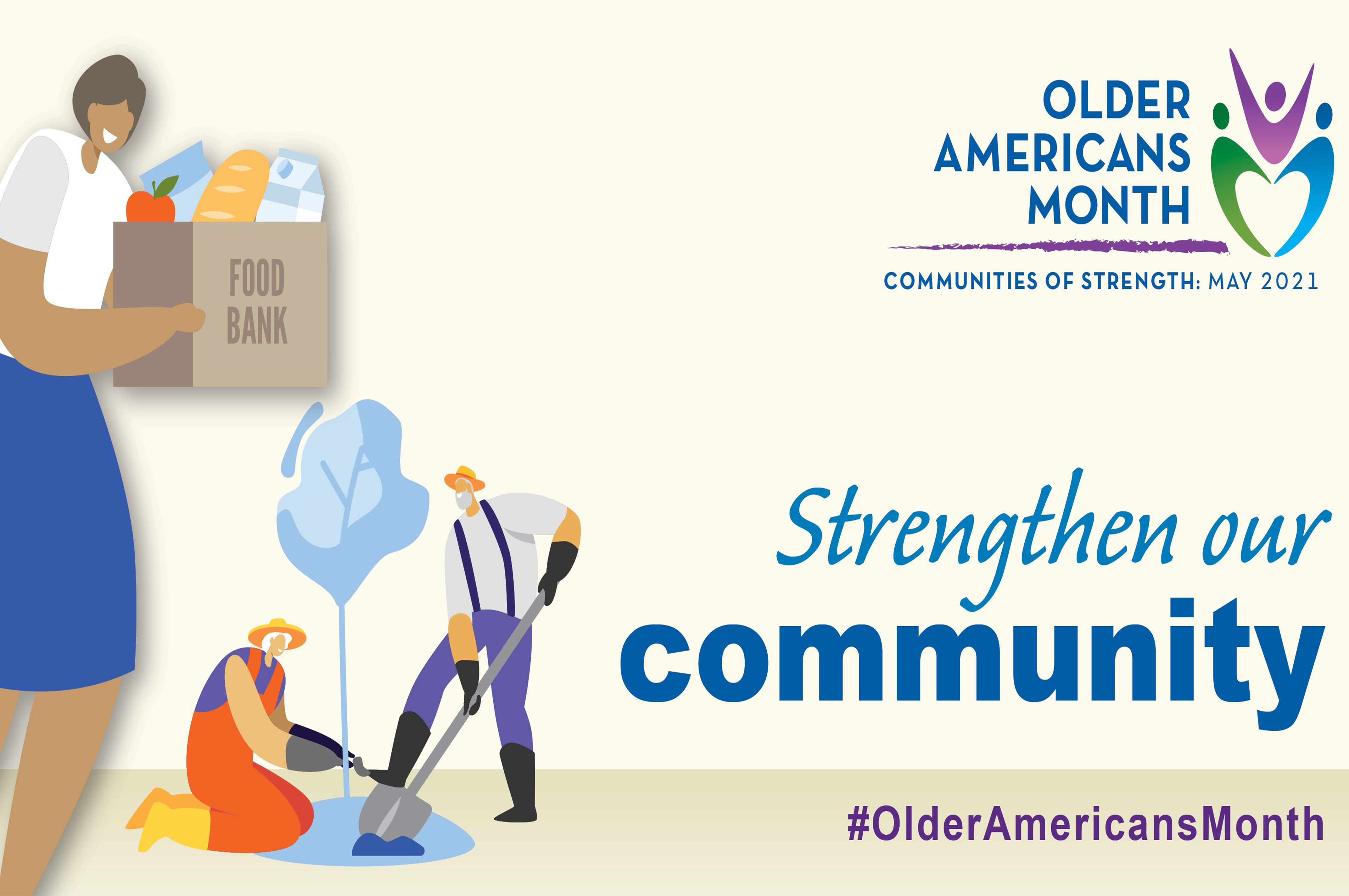May is a month of many celebrations. Among them are Mother's Day, Nurses Week, and Older Americans Month. One year ago, in this newsletter, we paid tribute to the nurses who were engaged in providing care to so many who were sickened or died from COVID-19. This year we will pay tribute to older adults for whom this past year imposed tremendous challenges as well as opportunities to learn to live and do things differently. More than 80% of all deaths from COVID-19 were in people 65 years or older. Older people lost friends, spouses, loved ones, and even children. Social isolation became a new phenomenon as older people were separated from children and grandchildren, friends and neighbors, and resources within communities such as senior centers and places of worship where socialization so often occurs. Yet, many older people learned that technology was something that they could use to connect in ways they had never thought. They used Zoom to connect with friends and relatives far more frequently than ever before. Telemedicine became a way to deal with minor health issues without leaving the house on a cold day. Many found that the more simplistic life without having to make decisions about such things as where to go, when and how to get there, and who might be upset if you don't come all contributed to a certain calmness because there was nowhere to go and there was always COVID-19 to blame for why you weren't going. The theme of this year's Older Americans Month is "Communities of Strength" to celebrate the resilience and strength older adults have demonstrated and to celebrate the wisdom and experience they bring to communities.
The paradigm of communities made strong by the wisdom and experience brought by older adults is a strong contrast to the prevailing stigma of ageism with which older people are perceived as being forgetful, lonely, and frail. If you misplace your keys when you are in your 30's, it is no big deal, but if you misplace them when you are 80, it must be a sign of dementia. While 60% of younger people think older people are lonely, studies have shown that less than 12% of older adults are lonely. And although it is commonly perceived that most older people have some disability, about 60% of those 65 and older live with no disability (CDC, 2018). There is concern among the general public about the looming healthcare crisis as the population 65 and over grows because they associate aging with the loss of independence and physical and cognitive deterioration. In contrast, research has shown that communities are vital to maintaining health and independence as people age because social determinants of health such as food access, walkability, and safety are integral to how we experience aging.
To commemorate this month of May in recognition of older adults as integral members of our communities, we need to focus on the elements that support older people to be able to live independently at their highest potential of wellness in these communities. This means we must not stereotype older people as lonely, frail, and confused but embrace and celebrate the wisdom and experience they bring to the community. We must also advocate for policies and resources that ensure that older people have food security and access to safe and affordable housing and transportation. Not just this month, but every month, let's celebrate the gifts that older people give to all the other generations and look for ways to ensure they are supported by communities of strength.
-----

 Donation
Donation
